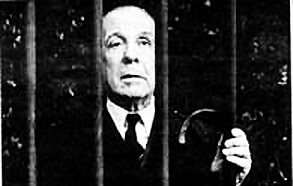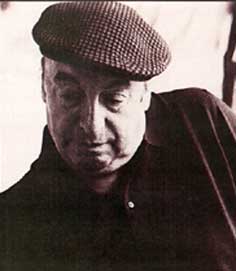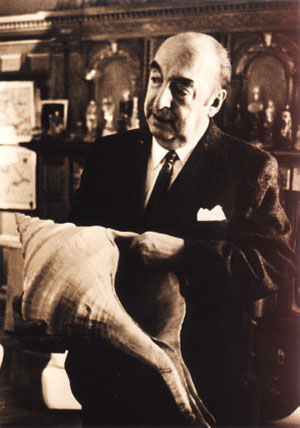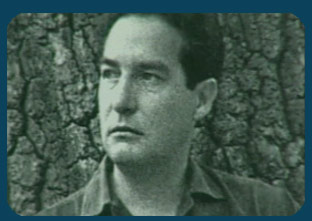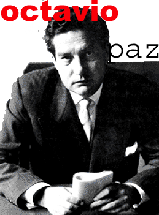LITR 4232 American
Renaissance

Whitman, “Crossing Brooklyn Ferry”
| review, preview
assignments Whitman's influence
|
|
Thursday, 6 April: Whitman, “Crossing Brooklyn Ferry.” p. 2995
Reader: Susan Hooks
Exercise on one of Whitman's best mid-length poems
How can you tell it's a poem by Whitman?
What unique pleasures? What surprises? What pains?
“Crossing Brooklyn Ferry“
Some Romantic and Transcendentalist themes, but also looks ahead to "Modern" poetry
Romantic & Transcendentalist: correspondence, fusion of individual with nature or surroundings
but Modern: nature or surroundings are partly urban: "Brooklyn Ferry" is a city scene, not an escape to Thoreau's Walden pond or Cooper's primeval forest
Plus "mystical" themes
relation between individual and community, self and others
(objective 3) (Whitman varies the standard Romantic-masculine position of the
solitary individual standing apart from and above nature: Thoreau, Emerson,
Wordsworth, Douglass. Plus he works toward answering a classic problem of
American society:
relation between past, present, and future (often most surprising part of poem to first readers); cf. p 2913
assignments
Tuesday, 11 April: Hawthorne, from Abraham Lincoln. Abraham Lincoln, “Gettysburg Address” + “Second Inaugural Address.”
Reader: Susanne Brooks
Lincoln, Jefferson as most gifted writers among U. S. presidents
most widely quoted
not even any really close seconds
"most bookish" presidents: Jimmy Carter, John Quincy Adams, Woodrow Wilson
plus or minus John Kennedy and Bill Clinton
Ronald Reagan may not have read widely, but his writings for radio and personal letters show good style.
back to Lincoln plus or minus Jefferson:
"American" speech style--what patterns and sources?
patterns:
plain-spokenness + richness, idealism--what balance?
addressing common people, uplifting union
sources: everyday speech
Bible--but, given our secular government, how does Lincoln get away with it? Compared to today, why is explicitly biblical speech
Why read Lincoln before concluding Whitman?
Thursday, 13 April: Whitman, “When Lilacs Last in the Dooryard Bloom’d”
"Lilacs" is an elegy for Lincoln
review > preview
last class, introduce Whitman
Whitman as "revolutionary" poet.
Changes subject matter of poetry--instead of poetry just being about pretty flowers and heroes of the past and noble sentiments, poetry becomes more about everyday life, including the streets and farms of common American life, its common people, and the problems they face in terms of democracy, sexual identity, race, etc.
Changes style of poetry--instead of writing traditional poetic forms like sonnets and ballads, Whitman is the first major poet to write "free verse"--i. e., poetry without regular rhyme or fixed numbers of accents per line
free verse is not just broken-up prose
doesn't use regular rhyme and meter, but continues to use other rhetorical and poetic devices to heighten intensity and meaning of language
standard: metaphors, other figures of speech, alliteration and assonance
Whitman's most identifiable free verse techniques:
parallelism
catalog
Whitman also changes subjects of poetry, expands range of subjects to be drawn into and faced poetically
instead of poetry just being about pretty flowers and heroes of the past and noble sentiments, poetry becomes more about everyday life, including the streets and farms of common American life, its common people, and the problems they face in terms of democracy, sexual identity, race, etc.
Whitman resolves poetically a problem in American society that can't be resolved otherwise.
All Americans are equal.
Each American is special, unique, an individual.
Inherent contradiction between equality and individuality?
what I assume you shall assume
opposite equals advance
union (sexual, mystical, or both)
purposes in reading "Crossing Brooklyn Ferry"
style:
parallelism
catalog
other poetic devices
subject matter:
identification
equality and difference, equality and individualism
identification not just with "pretty" nature but also city, human world
union of past, present, future, link, bridge
Other Whitman signatures?
projects due Thursday-Saturday
assignments for Thursday
review Whitman, greatness, style, individuality & union
"something"
review Whitman, greatness & style
last class: Whitman as "the greatest American poet"--defining
"greatness" in writers & artists and measuring Whitman's
achievements
Whitman's style
Whitman's style in terms of subjects, techniques
Analytic divisions, but all one poem
best poetry where style and subject meet
best criticism sees it
subjects, content
expands range of subject matter
forbidden subjects
inclusiveness (democratic?)
everyday ("A Child Went Forth") + 2763-4
not just "pretty nature" but city, industrialism
2877 works at inclusiveness, both good and bad are parts of world
2879 identification
identification: absorption, expression of other; other's absorption, identification of self
(correspondence?)
2863 what I assume you shall assume
2865 opposite equals advance
2866 union
metaphysical issue: unity in variety
applied to democracy: nation of individuals
resolutions:
1. mystical union
Emerson, p. 1518 Nature
I am glad to the brink of fear. . . . I am nothing; I see all; the currents of the Universal Being circulate through me; I am part or particle of God
William James, Varieties of Religious Experience
2. sexual union
(sometimes experienced with cosmic language: "Oh God, Oh God . . . "; "Darling, the galaxies spun and choirs of angels sang . . . .")
Statue by Bernini of "Saint Teresa in Ecstasy" at Vatican
style
Poetic style: Whitman “freed verse”; how is free verse still poetry?
no rhyme,
standard meter
long line--breath + inclusive
2891 parallelism, repetitions
repetition as structuring device
repetition + variation
2891 catalogue--also in King cornucopia
of land of plenty
2882 parallelism + catalog
Lincoln's "Gettysburg Address" & King's "I Have a Dream" as examples of parallelism & catalogue
significance of terms
"empty signifier"
"something"--Hawthorne
leaves a void that reader participates in filling
"Black Veil" 2196 . . . there was something, either in the
sentiment of the discourse itself, or in the imagination of the auditors, which
made it greatly the most powerful effort that they had ever heard from their
pastor's lips.
What, but the mystery . . has made this piece of crape so awful
cf. Poe, "Ligeia" : "What was it--that something . . .
which lay far within the pupils of my beloved? What was it? . . . we
often find ourselves on the very verge of remembering
anticipates Whitman in "Crossing Brooklyn Ferry": "What is
it then between us?"
"Crossing
Brooklyn Ferry"
identification
with nature
with others in democracy and time--equality
l. 7 "myself disintegrated"
l 22 just as you feel, . . . so I felt
l 78 one with the rest
"What is it then between us?"--"something"--not precision but evocations
sanctification of individual
l. 33 [halo]
l 95 what gods can exceed these that clasp me by the and . . .
l. 126 dumb beautiful ministers--everything significant
"What is it then between us?"--"something"--not precision but evocations
l. 6 impalpable sustenance
4, l. 49 "the same as they are to you"
5, l. 54 "What is it then between us?" . . . Whatever it is . . .
8, l. 99 What I promised without mentioning it
Poe 1432 that something . . . what was it?
Hawthorne
2221 And do you feel it then at last?
crossing boundaries
l. 5 you . . . years hence
l. 20 distance avails not,
I am with you
Web-highlighter: Laura Jones
Final Exam 2003
[regarding Song of Myself]
This poem also shows how Whitman paints a picture through details. The reader
can actually see the starving sailors far out at sea as they cast lots with
fearful expressions knowing that one of them is about to be sacrificed. There is
also a variety of settings from home life to city life, and from the battlefield
to the ship at sea. Nevertheless, the only unity in these various situations is
sorrow and agony. [SB]
2001 Presentation
[DG]
[Regarding “Crossing Brooklyn Ferry”] The main theme
of this poem seemed to be that while everyone has the ability to think for
themselves, make their own decisions, and be an individual, we as people are
held together by the fact that we share experiences. Everything that you think,
feel, or experience, has been thought, felt, or experienced by thousands of
other people. These shared experiences are what pull us together as a community.
Whitman seemed to put an emphasis on the fact that common experiences will transcend location, morality, race and gender. The theme of individuals sharing experiences extends pas white, moral Americans.
It was also interesting to see that Whitman did not see technology as a burden. He made no distinction between the way he described natural objects (like the seagull) and the man made objects (like the ships). When describing these natural and man made objects he seemed to be giving us just the facts, not an insight to the importance of the objects or how they relate to humans other than the image they reflect on our eyes and that we all see the same things.
Whitman's influence
"You Gotta Know these Latin American Writers"
|
|
|
Jorge
Luis Borges, Argentine writer, poet, essayist, short-story author
1899-1986
early life in Europe as well as Argentina
head of National Library of Argentina
Many, many collections of translated poetry, short stories, essays
From one internet biography:
After World War I the Borges family lived in Spain, where he was a member of avant-garde Ultraist literary group. His first poem, 'Hymn to the Sea,' written in the style of Walt Whitman, was published in the magazine Grecia.
|
|
|
Pablo
Neruda, great 20th-century poet of Chile
1904-1973
1971 Nobel Prize for Literature
Communist senator in Chilean congress before exile
Il Postino (1994 film)
. . . The American poet Walt Whitman, whose framed portrait Neruda later kept on his table, become a major influence on his work. "I, a poet who writes in Spanish, learned more from Walt Whitman than from Cervantes," Neruda said in 1972 in a speech during a visit in the United States.
(http://www.kirjasto.sci.fi/neruda.htm)
from Jorge Luis Borges: Conversations, ed. by Richard Burgin, 1998, regarding Neruda:
We did meet
forty years ago. At that time we were both influenced by Whitman and I said,
jokingly in part, 'I don't think anything can be done in Spanish, do you?'
Neruda agreed, but we decided it was too late for us to write our verse in
English. We'd have to make the best of a second-rate literature."
|
|
|
Octavio
Paz, Mexican poet, essayist, diplomat
1914-1998
1990 Nobel Prize in Literature
born in village near Mexico City during Mexican Revolution
grandfather a novelist, father a liberal reformer
1962 Mexico's ambassador to India
most famous book: The Labyrinth of Solitude re Mexican character


